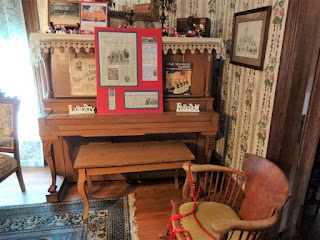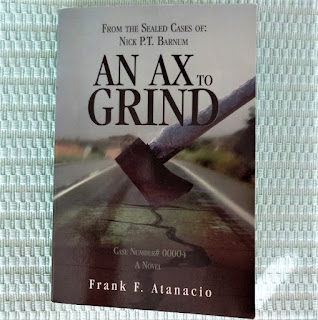The best trip of our ongoing cruising adventures was our trip to Panama in December of 2023. We were aboard the Ruby Princess, which although it is an older ship, has a charm and appeal that can't be matched by the huge megaships in the fleet.
What made the trip memorable? First of all, our cabin was spectacular. We opted for a full penthouse suite which, if you ever get the chance, is a must-try. As "sweeties" so-named by the Events and Guest Services supervisor, Tina DeBarros, we were spoiled beyond belief.
Embroidered house slippers and luxury robes, umbrellas and a fruit basket waited to welcome us to the room. The towels were extravagantly thick and felt new. The bathroom was beautiful with a full tub and a glass-enclosed shower along with a separate toilet room.Our balcony was twice the normal size of our mini-suites and the closet space was extravagant. Topping it off, the service by our room steward was impeccable.
But, before arriving at the ship, we were invited to a special gathering at the headquarters in Ft. Lauderdale with a pre-boarding photo session and a spread of delectable food treats.
Staff members answered questions and made dinner bookings for us at specialty restaurants onboard. They labeled our luggage and whisked it off to be taken directly to our rooms.
Before a transport van took us directly to the secret entrance for embarkation with NO waiting in line, we had a fascinating conversation with Tina whose insight about the ports we were to visit was truly enlightening.
Our daily breakfast location was at Sabatini's, reserved for suite holders and Elite level passengers. One morning, I ordered the traditional eggs Benedict meal and it was fabulous.
Throughout the cruise we would run across Tina who never failed to recognize us and give a huge hug. She photobombed our breakfast pics, taken by the Maître D, Ivan, whose sense of humor had us in stitches.
The ten-day cruise took us to Jamaica, Cartagena Columbia, the Panama Canal, Costa Rica and the Cayman Islands. My favorite port was Costa Rica where the tourist shops at the end of the pier offered native artwork, beautiful paintings on wood, hand-made leather items and the usual assortment of t-shirts, hats and carry-all bags.
The nearby shopping area in Jamaica was the only area we explored while there. The merchandise was a bit overpriced, (t-shirts for $38) but if you compared from shop-to-shop you could get a few deals.
 |
| Jamaica |
 |
| Cartagena Castillo de San Felipe de Barajas |
In Cartagena Columbia, we took a bus tour of the city that stopped at a fort for 10 minutes to explore the area. A bit longer would have been nice.
 |
| Flamenco Dancers |
The tour ended at a souvenir shop where we found magnets, hats and other gift items.
The walk-through on the way back to the ship took us through a parrot and flamingo filled garden where the birds roamed free. It was beautiful.The actual transit through the Panama Canal was an experience in itself. We stood on the bow of the ship and watched as the locks opened and closed allowing the ship passage through the narrow canal. It was the experience of a lifetime.
 |
| Panama Canal Ship Locks |
But the very best part of the trip was being with our friends, Renee and Keith whom we'd met on a trip in April when we visited Cozumel, Costa Maya and Roatan. Our foursome managed to stay awake late enough to close down the dance party in the Piazza when the classic rock band played.
We enjoyed great food, entertainment, tours, games, invitations to the Captain's party, a private Concierge Lounge a few doors down from our room where we could get coffee in the morning, snacks and drinks at happy hours. It was a fantastic voyage!





















.jpg)















